Maximizing Your Real Estate Website: An Owner's Manual for Success
In today's competitive real estate market, having a powerful website is essential for success. This blog serves as an owner's manual, providing you with actionable strategies to maximize your website's potential, engage buyers and sellers, and enhance your online presence. Join us as we explore the key steps to transform your website into a 24/7 business hub.
Table of Contents
- Maximizing Your Website
- Meet the Team Behind Liftoff Agent
- Transforming Your Website into a Business Hub
- 11 Steps of Success to Maximize Your Website
- Engaging Buyers: 9 Key Steps
- Engaging Sellers: 9 Effective Strategies
- Boosting Engagement and SEO: 10 Essential Steps
- The Importance of User Experience (UI/UX)
- Leveraging Video Content for Engagement
- Creating Targeted Landing Pages
- Success Stories: Real Agents, Real Results
- Free Resources and Exclusive Offers
- Frequently Asked Questions
Maximizing Your Website
Maximizing your real estate website is crucial in today's digital landscape. A well-optimized website acts as a 24/7 business hub, enhancing your visibility and engagement with potential clients. By effectively utilizing your website, you can attract more leads, showcase your listings, and provide valuable information that meets the needs of both buyers and sellers.
In this guide, we will explore various strategies that can help you transform your website into an essential tool for your real estate business. From enhancing user experience to implementing effective SEO practices, every step counts towards achieving success in the competitive real estate market.
Meet the Team Behind Liftoff Agent
The strength of Liftoff Agent lies in its dedicated team. Our co-founders, Norman Kinsey III, and Smith Chung, along with their talented staff, are committed to providing top-notch marketing solutions for real estate agents. With a wealth of experience and a passion for helping others succeed, our team collaborates closely to deliver exceptional service.
We have specialists in video editing, web development, and social media management, all working together to ensure that our clients have the best tools at their disposal. The Liftoff Agent team is not just about business; we foster a family environment where every member contributes to the overall success of our clients.
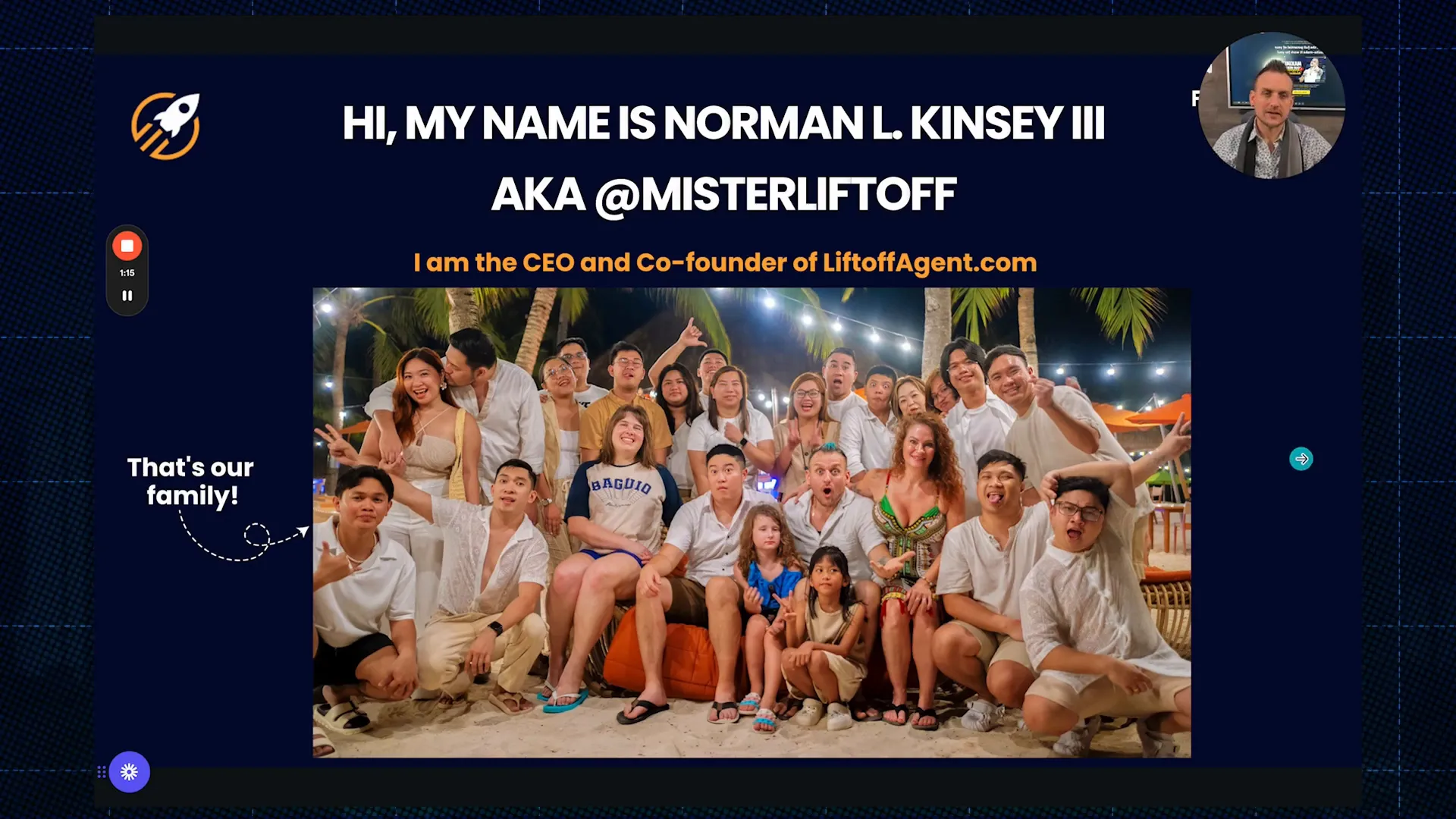
Transforming Your Website into a Business Hub
Your website should not just be a digital business card; it should serve as a comprehensive business hub that integrates various functionalities. This includes showcasing listings, providing information about the local area, and offering resources for both buyers and sellers. An effective website combines aesthetics with functionality, ensuring that visitors can easily navigate and find the information they need.
Features such as automated listing feeds, interactive maps, and social media integration can significantly enhance user experience. By creating a dynamic online presence, you can engage visitors and encourage them to explore what you have to offer.
11 Steps of Success to Maximize Your Website
To maximize your website's potential, follow these 11 key steps:
- Unique Forms: Implement forms that capture essential information to drive meaningful conversations with potential clients.
- SEO Strategy: Stay ahead with a robust SEO strategy that ensures your website ranks well in search results.
- Social Media Integration: Drive traffic to your site through social media platforms by sharing valuable content.
- Educational Videos: Use videos to educate clients about buying and selling processes, showcasing your expertise.
- Downloadable Guides: Offer guides that potential clients can download, providing them with valuable information.
- Vendor Lists: Share vendor lists directly on your site to keep visitors engaged and coming back for more.
- Property Search: Allow users to search for properties directly on your site, keeping them engaged without leaving.
- Listing Presentation Pages: Create unique pages for listing presentations that can wow potential sellers.
- Tracking and Retargeting: Utilize IP tracking to gather leads and retarget potential clients effectively.
- Video Engagement: Track video engagement to understand which content resonates with your audience.
- CRM Integration: Ensure all leads captured through your website flow seamlessly into your CRM for nurturing.
Engaging Buyers: 9 Key Steps
To effectively engage buyers through your website, consider these nine steps:
- Custom Property Alerts: Set up alerts that notify buyers of new listings that match their criteria.
- Personalized Buyer Guides: Offer tailored guides that address common buyer concerns and questions.
- Video Playlists: Create playlists of videos that explain the buying process and showcase properties.
- Forms for Next Steps: Utilize forms that guide buyers through the next steps in their home-buying journey.
- Testimonials: Display testimonials to build trust and credibility with potential buyers.
- Meeting Scheduling: Implement a scheduling tool that allows buyers to set up meetings easily.
- Interactive Maps: Provide interactive maps that help buyers explore neighborhoods and local amenities.
- Content for Engagement: Regularly update your site with engaging content that keeps buyers coming back.
- CRM Integration: Ensure that all interactions are tracked and managed through your CRM system.
Engaging Sellers: 9 Effective Strategies
Engaging sellers is equally important, and these nine strategies can help:
- Listing Presentation Page: Create a compelling page that outlines your listing strategy and showcases your services.
- Seller Guides: Provide downloadable seller guides that inform sellers about the selling process.
- Vendor Resource Guides: Share resources that help sellers prepare their homes for sale.
- Personalized Seller Guides: Offer tailored guides that address specific concerns for sellers.
- Next Steps Forms: Utilize forms that prompt sellers to provide information about their selling timeline.
- Testimonial Videos: Feature video testimonials from satisfied clients to build trust.
- Lead Capture Tools: Implement tools that allow you to capture leads without requiring extensive information.
- Meeting Scheduling: Allow sellers to schedule meetings effortlessly through your website.
- CRM Integration: Ensure all leads are integrated into your CRM for follow-up and nurturing.
Boosting Engagement and SEO: 10 Essential Steps
To enhance engagement and improve your SEO, follow these 10 essential steps:
- UI/UX Enhancement: Focus on improving the aesthetic appeal and usability of your website.
- Video Walkthrough Tours: Create video tours of your site to guide users through its features.
- Targeted Content: Tailor your content to speak directly to your ideal customer demographic.
- Video to Blog Integration: Convert video content into blog posts to improve SEO.
- Keyword Optimization: Research and utilize keywords that potential clients are searching for.
- Area Content: Provide detailed content about local areas to attract local traffic.
- Interactive Features: Incorporate interactive features that engage users and keep them on your site longer.
- Email Campaigns: Use email marketing to drive traffic back to your website.
- Social Media Campaigns: Leverage social media to promote new content and engage with your audience.
- Analytics Tracking: Regularly monitor your website’s analytics to identify areas for improvement.
The Importance of User Experience (UI/UX)
Creating an exceptional user experience (UI/UX) is essential for any real estate website. A well-designed site not only attracts visitors but also keeps them engaged. When users find it easy to navigate and access information, they are more likely to stay longer and explore various listings.
Investing in UI/UX involves understanding your audience's needs and preferences. Elements such as intuitive navigation, responsive design, and fast loading times contribute significantly to a positive user experience. Additionally, incorporating user feedback can help you refine your website further, ensuring that it meets client expectations.
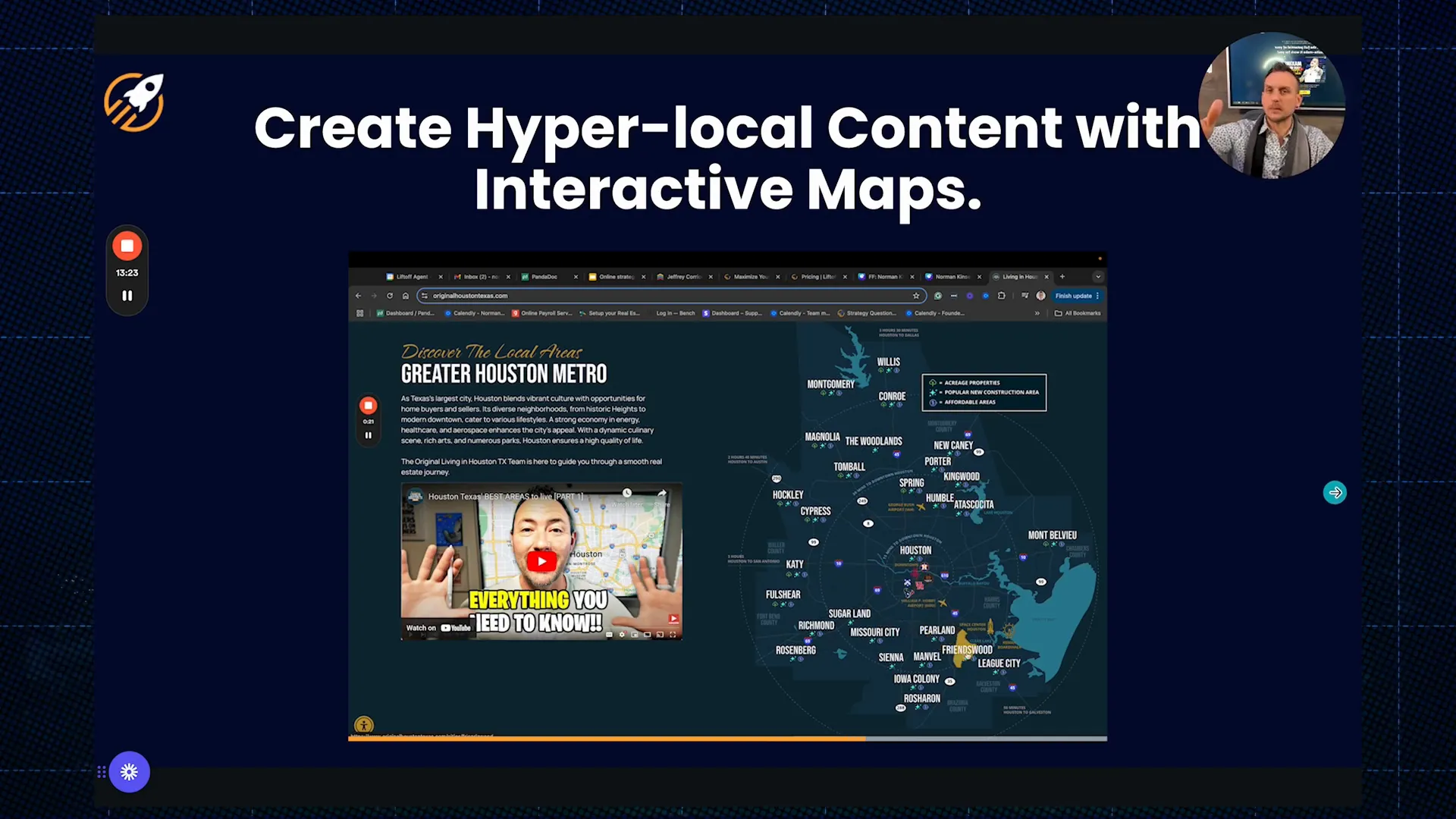
Key Elements of UI/UX
- Intuitive Navigation: Ensure that users can easily find what they are looking for without confusion.
- Responsive Design: Optimize your website for all devices, including mobile and desktop.
- Fast Loading Times: Minimize loading times to reduce bounce rates and improve user satisfaction.
- Clear Call-to-Actions: Use prominent buttons and links to guide users towards desired actions, such as scheduling a consultation or signing up for alerts.
- Visual Appeal: Use high-quality images and a cohesive color scheme to create an inviting atmosphere.
Leveraging Video Content for Engagement
Video content has become a powerful tool for engagement in the real estate industry. By incorporating videos into your website, you can provide potential buyers and sellers with a more immersive experience. Videos can showcase property features, share client testimonials, or provide valuable educational content.
Additionally, hosting live Q&A sessions or virtual tours can significantly increase interaction with your audience. This not only builds trust but also positions you as an expert in your field.
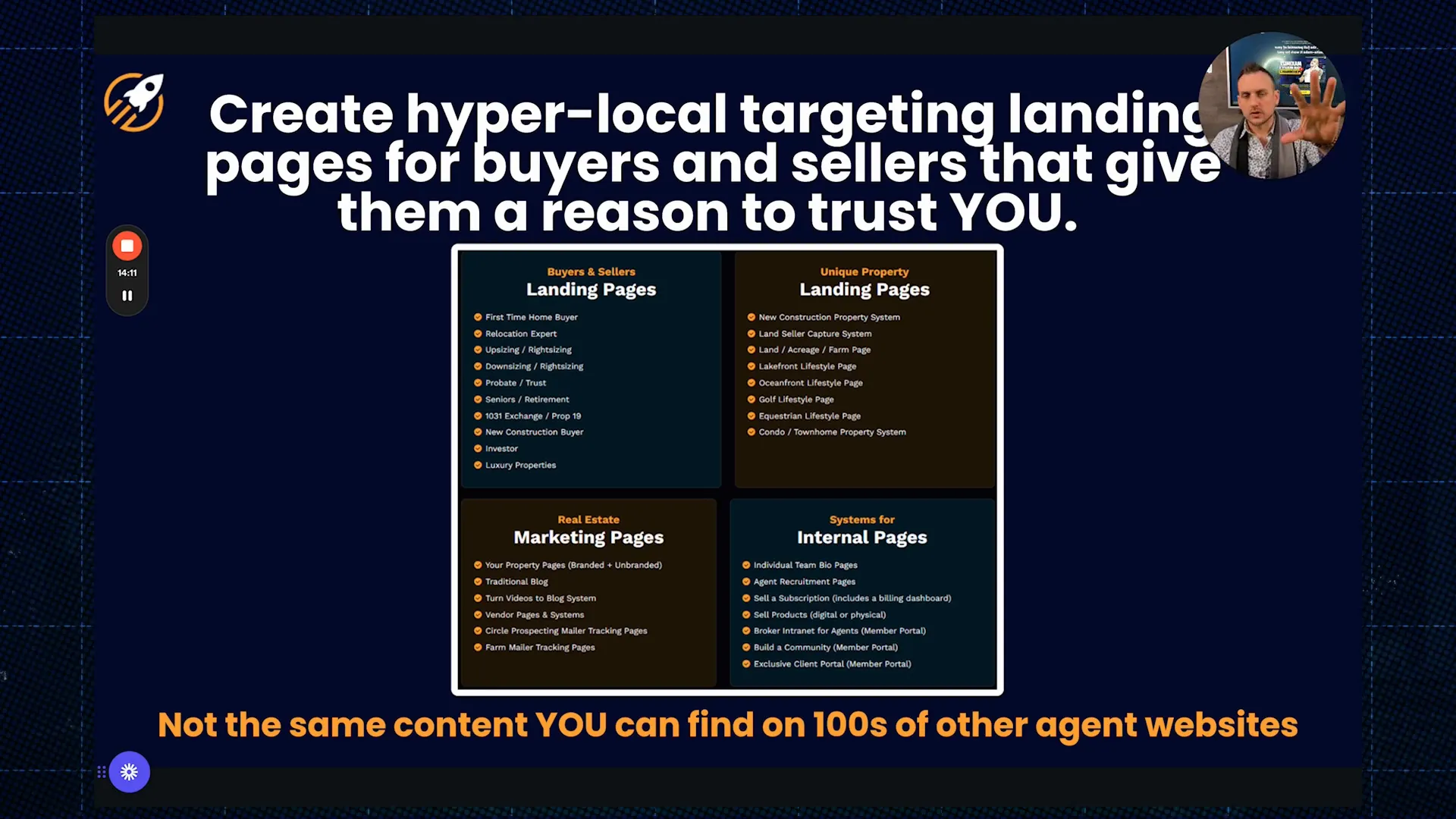
Types of Video Content to Consider
- Property Tours: Give potential buyers a virtual walkthrough of listings to highlight key features.
- Client Testimonials: Share success stories from past clients to build credibility.
- Educational Videos: Create content that educates viewers about the buying and selling process, market trends, and tips for homeownership.
- Live Q&A Sessions: Engage with your audience in real-time to answer their questions and address concerns.
Creating Targeted Landing Pages
Targeted landing pages are crucial for converting visitors into leads. These pages should be tailored to specific segments of your audience, focusing on their unique needs and interests. For example, you might create separate landing pages for first-time homebuyers, luxury listings, or investment properties.
Each landing page should include compelling content, clear call-to-actions, and relevant visuals. By personalizing the experience, you increase the likelihood of conversions and foster a deeper connection with your audience.
Best Practices for Landing Pages
- Clear Headlines: Use attention-grabbing headlines that speak directly to the target audience.
- Concise Content: Keep information straightforward and focused on the benefits for the visitor.
- Visual Elements: Incorporate images or videos that resonate with the target demographic.
- Strong Call-to-Action: Ensure that visitors know what action to take next, whether it’s signing up for a newsletter or scheduling a consultation.
Success Stories: Real Agents, Real Results
Hearing from successful agents can inspire and motivate others in the industry. Sharing case studies and testimonials provides social proof of your services and the effectiveness of your strategies.
Highlighting specific outcomes, such as increased website traffic, lead generation, or successful transactions, can demonstrate the tangible benefits of working with your agency.
Example Success Stories
- Agent A: Increased website traffic by 150% within three months by implementing targeted SEO strategies and video content.
- Agent B: Generated over 50 leads in one month through a personalized landing page campaign focused on first-time homebuyers.
- Agent C: Achieved a 30% conversion rate on their landing pages by utilizing compelling visuals and clear CTAs.
Free Resources and Exclusive Offers
Providing free resources can enhance your credibility and attract potential clients. Consider offering downloadable guides, checklists, or webinars that address common pain points in the real estate process.
Additionally, exclusive offers, such as discounts on your services or free consultations, can incentivize visitors to engage further with your business.
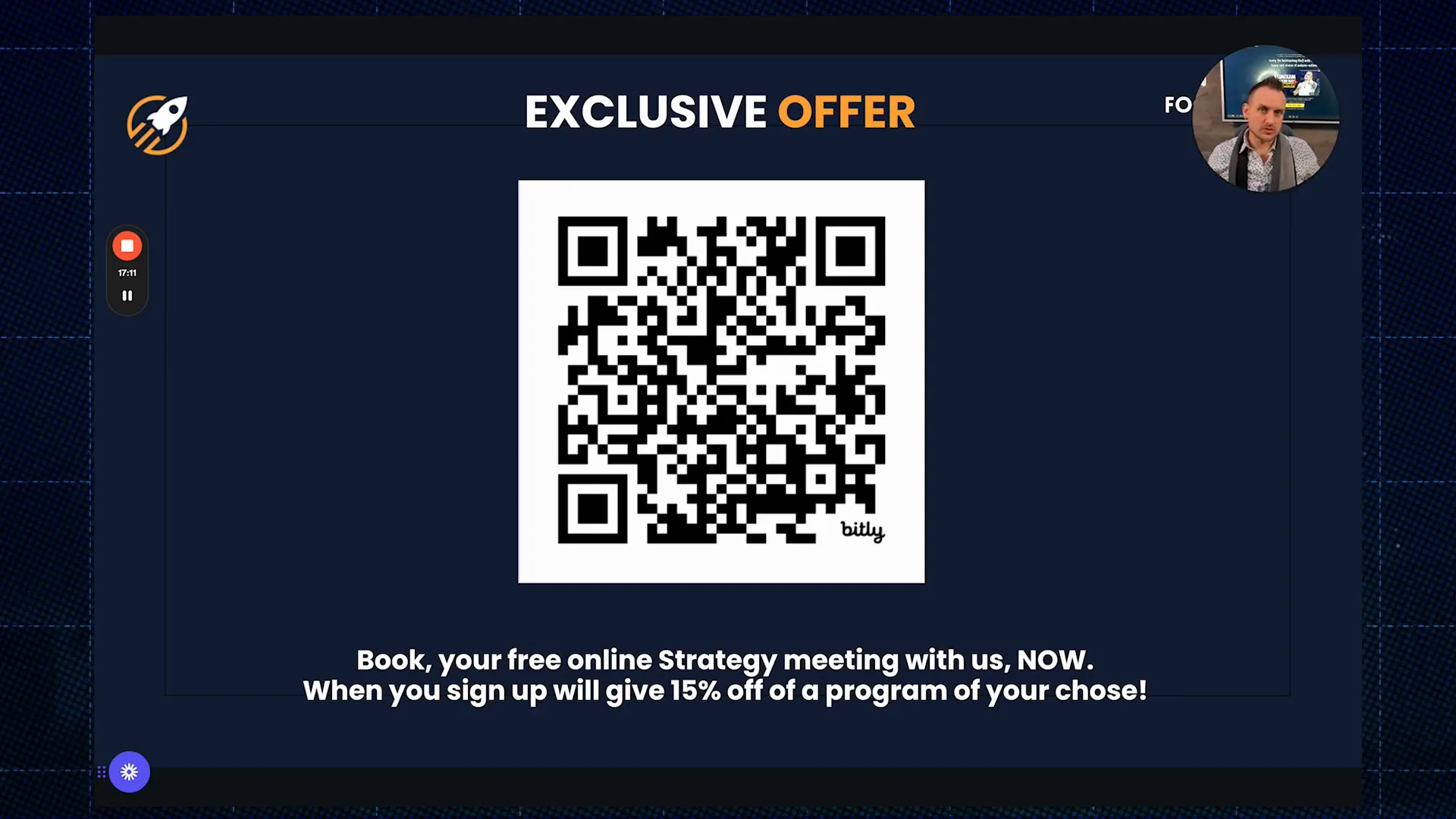
Types of Free Resources to Offer
- Downloadable Guides: Create comprehensive guides on topics like home buying, selling tips, or market analysis.
- Checklists: Provide checklists for buyers and sellers to keep them organized throughout their journey.
- Webinars: Host informative webinars that cover critical real estate topics and answer audience questions.
- Exclusive Discounts: Offer limited-time discounts on your services to encourage sign-ups and consultations.
Frequently Asked Questions
What are the key features I should include on my real estate website?
Essential features include property search functionality, unique landing pages for buyers and sellers, educational resources, and integration with social media and CRM systems.
How can I improve my website's SEO?
To enhance SEO, focus on keyword optimization, create engaging content, provide local area information, and utilize video content to improve visibility on search engines.
What types of video content can I use to engage clients?
You can create property tours, educational videos about the buying/selling process, client testimonial videos, and live Q&A sessions to interact with your audience.
How do I capture leads from my website?
Use forms to collect visitor information, offer downloadable resources, and implement tools like calendaring systems to facilitate easy meeting scheduling.
What is the importance of user experience (UI/UX) for my website?
A good UI/UX ensures that your website is easy to navigate and visually appealing, which keeps visitors engaged and encourages them to explore your services further.
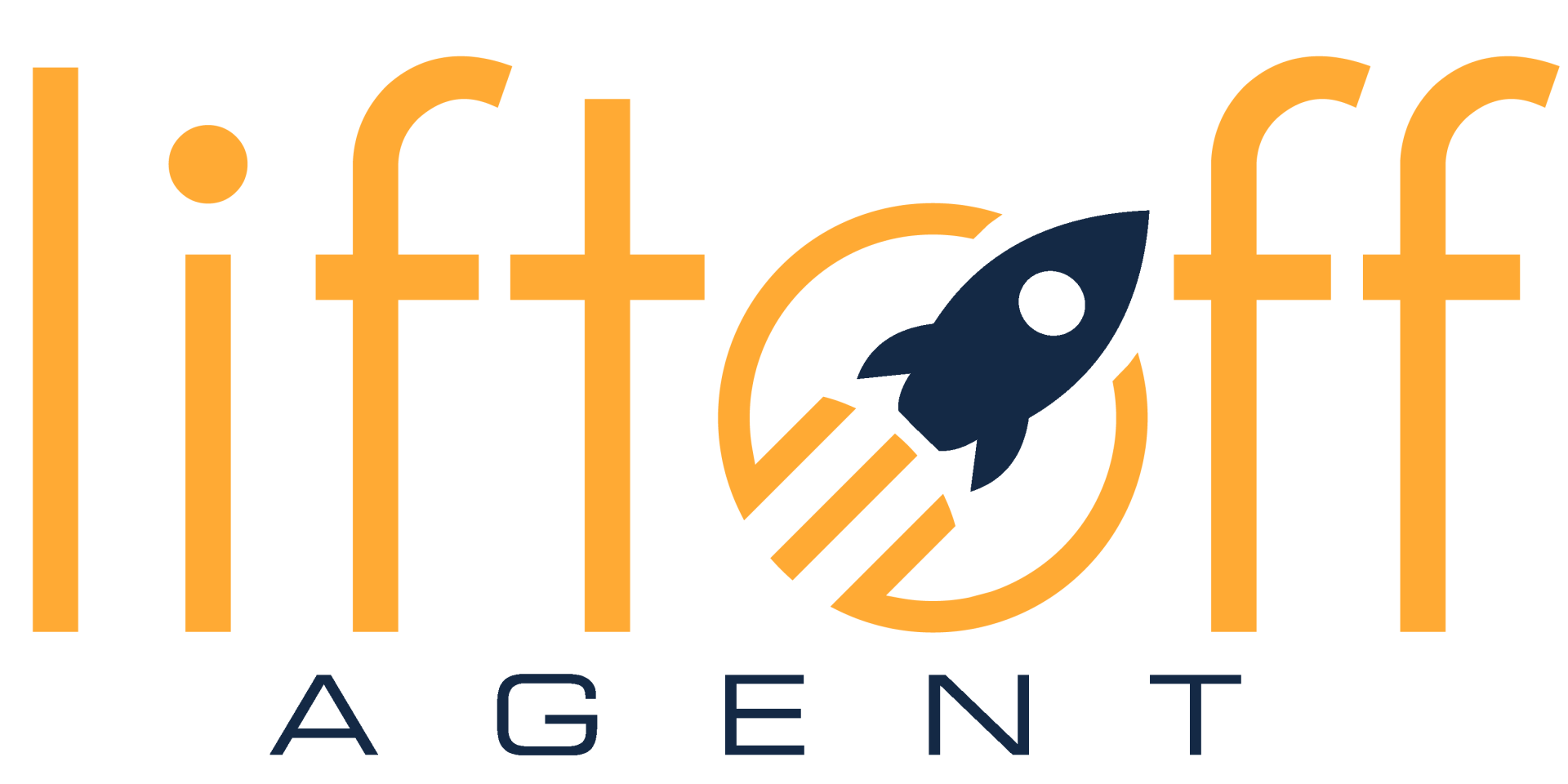
We specialize in working with real estate agents and teams to build local authority. We do this through creating and managing your brand, website, video and social presence.
We'd love to chat and show you how you can dominate your local market and avoid wasted marketing dollars.
Subscribe to Newsletter
Newsletter
We will get back to you as soon as possible.
Please try again later.

All Rights Reserved | Liftoff Agent